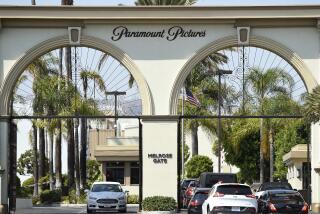$21.5 Billion Bid for Huge British Conglomerate
- Share via
LONDON — An investment group headed by flamboyant takeover specialist James Goldsmith launched an “unsolicited and unwelcome” $21.5-billion bid Tuesday for BAT Industries PLC, the British conglomerate that includes American subsidiaries ranging from Saks Fifth Avenue to Farmers Insurance Group Inc. of Los Angeles.
It is by far the biggest buyout ever attempted here, and London financial markets bet heavily Tuesday that the price may yet go high enough to rival last year’s world record $25-billion purchase of RJR Nabisco Inc. by Kohlberg Kravis Roberts & Co., a New York firm specializing in leveraged buyouts.
Goldsmith said he intends to sell off BAT’s non-tobacco interests, starting with the Farmers Group, which BAT acquired for $5.2 billion last Dec. 16 following a protracted takeover battle.
Farmers, California’s second-largest and the nation’s third-largest writer of personal lines of insurance, has 15,500 employees and another 15,000 agents and district managers with exclusive contracts to sell Farmers’ products. The company’s largest operation by far is in California.
BAT Chairman Patrick Sheehy promised a fight against the Goldsmith offer, calling it “no more than an ill-conceived attempt at destructive financial engineering.” The company “considers this unsolicited and unwelcome offer to be of dubious value,” according to a BAT press release, which added, “It should be rejected.”
An expectant British business community has been awaiting a high-stakes Goldsmith grab for some company ever since he announced his return to the London financial scene last March in partnership with his old friend, financier Jacob Rothschild.
But the size of his quarry clearly stunned the City, as London’s equivalent of the Wall Street financial district is called.
BAT (formerly British American Tobacco) shares closed up by more than 30%, at 906 pence (the equivalent of $14.77) a share Tuesday after trading earlier at as much as 940 pence ($15.32). Both figures were well above the 850 pence ($13.86) a share offered by Goldsmith’s group, indicating that the City expects the bidding to go higher in what analysts said is shaping up as a titanic battle for control.
Also in on the deal with Goldsmith and Rothschild is Kerry Packer, a colorful Australian entrepreneur and owner of Consolidated Press Holdings. The three are the principal members of Hoylake Investments PLC, an investor group formed specifically to make the BAT bid.
The bid and the associated takeover fever Tuesday sent the Financial Times’ 100-share index to a post-1987 crash high, up 55.7 points, or more than 2.5%, to close at 2,250.9.
Known in the British press as “the buccaneering billionaire,” Goldsmith, 56, has made nearly as many headlines because of his life style as he has because of his roller-coaster business career.
After an early up-and-down business career, he made millions in the food business here and was knighted before quitting England a decade ago in despair over its political and economic future.
He exported his takeover talents to the United States, where he multiplied his fortune in raids on Diamond International Corp., St. Regis Paper, Crown Zellerbach and, finally, Goodyear Tire & Rubber Co. But his greatest coup was to pull most of his assets out of the stock market just before the Black Monday crash in October, 1987.
He told a London news conference Tuesday that he had decided to return to Britain now because its economic prospects look “pretty good.”
He also rejected suggestions that his BAT bid was an example of asset-stripping, arguing that international conglomerates are a failure. He said BAT, which marked a watershed last year by generating more than 50% of its profits from non-tobacco interests for the first time, had made a mistake by diversifying. Goldsmith maintained that he only wants to “liberate” companies that have been “stifled” under the conglomerate structure.
Hoylake’s plan is to arrange bridge loans to buy BAT, then to immediately sell all the non-tobacco interests to pay off the debt as soon as possible.
Goldsmith admitted that the plan entails risk but argued that “the ultimate risk is not taking a risk.”
BAT posted an after-tax profit equivalent to $1.55 billion on revenue of $28.8 billion in its most recent fiscal year, which ended March 31. It is the third-largest publicly held British corporation, following British Petroleum and Shell Oil.
RELATED STORY: Business, Page 1
More to Read
Inside the business of entertainment
The Wide Shot brings you news, analysis and insights on everything from streaming wars to production — and what it all means for the future.
You may occasionally receive promotional content from the Los Angeles Times.








